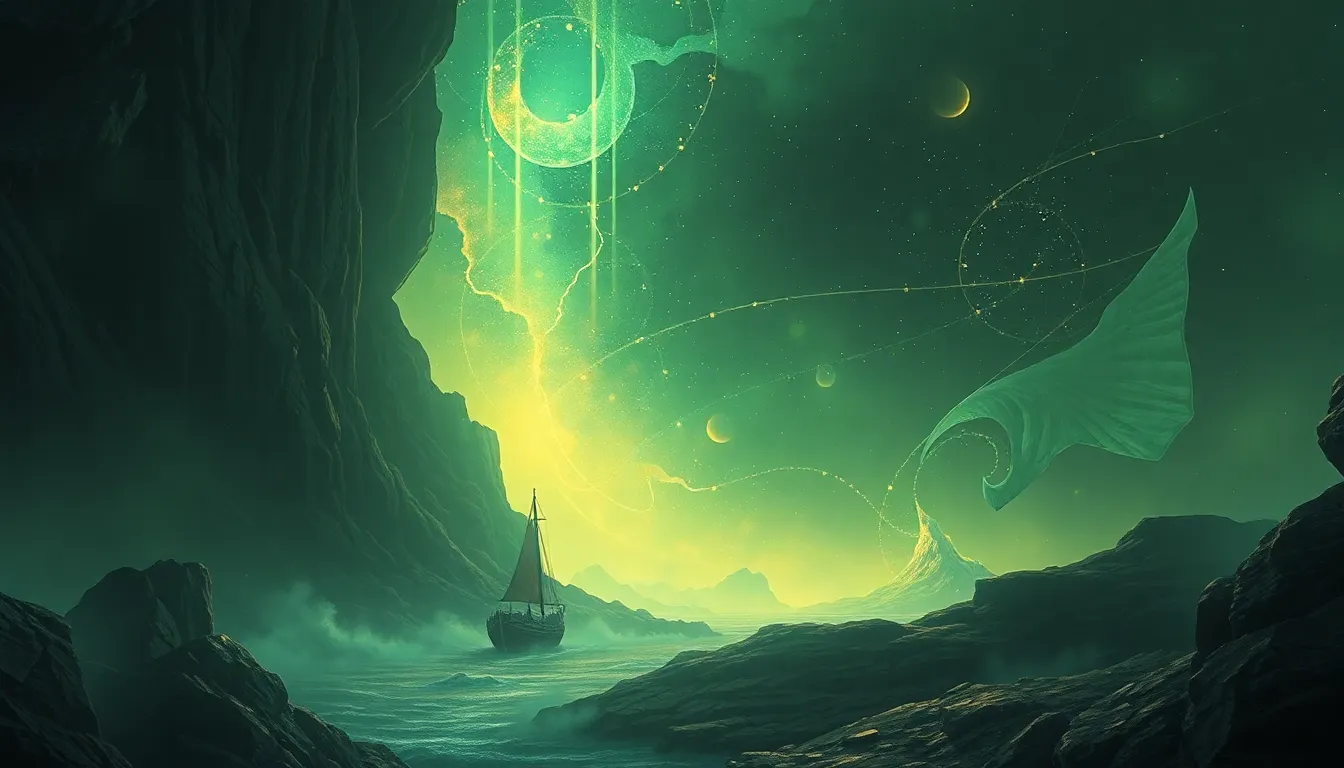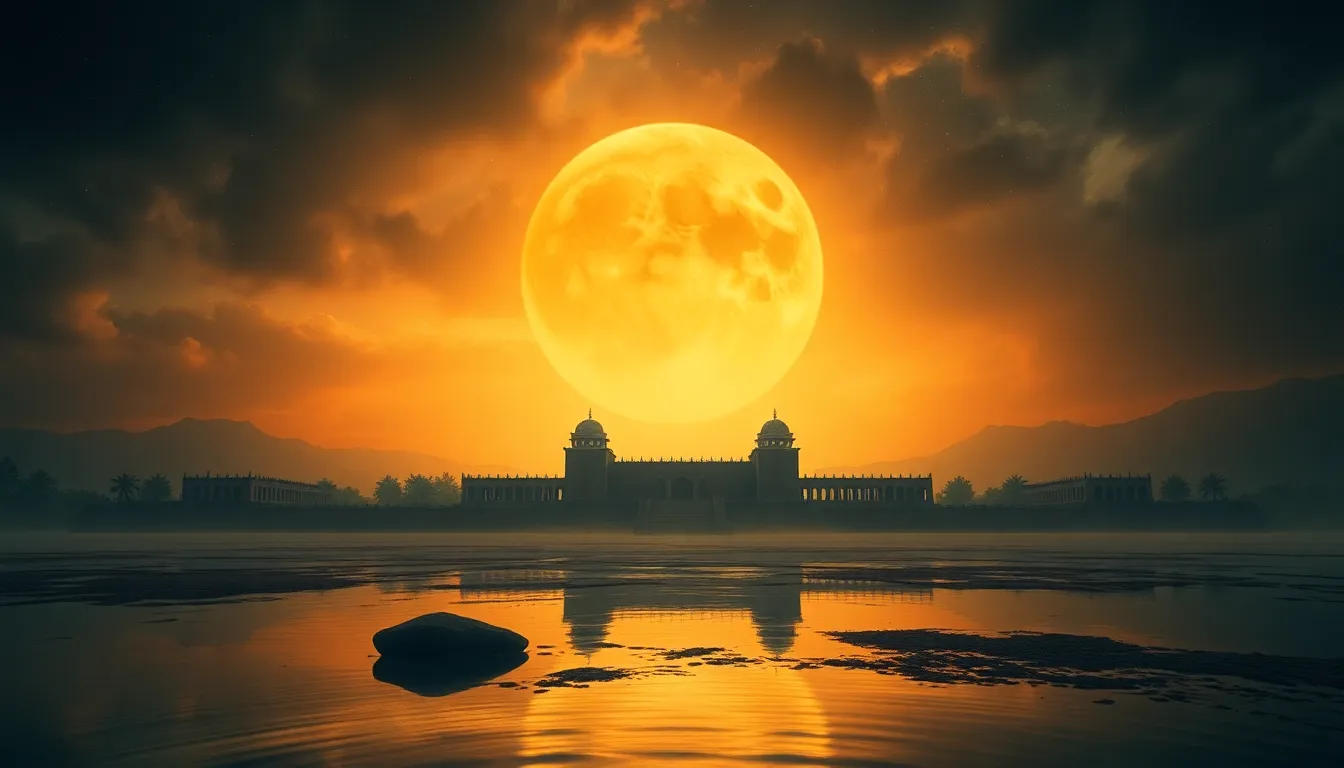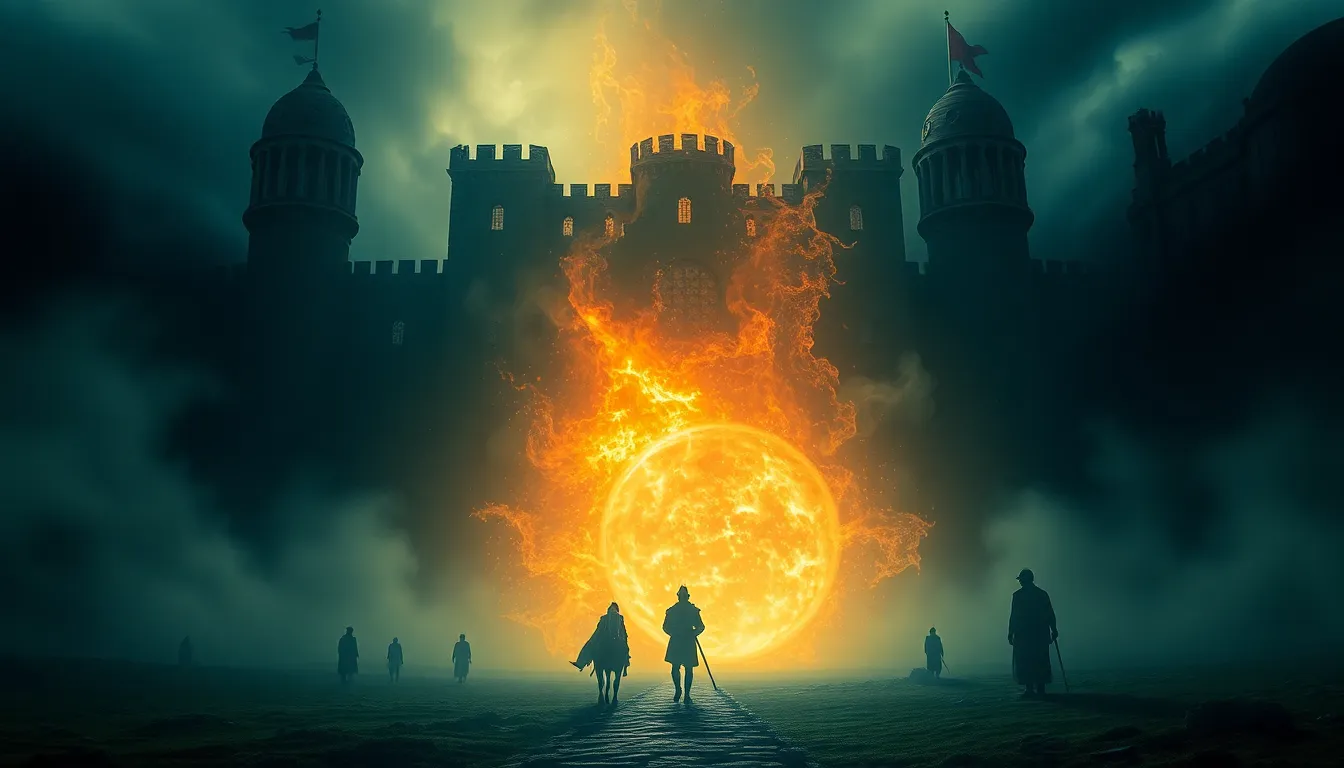The Kingdom of the Eternal Journeys: Myths of Exploration and Discovery
I. Introduction to the Kingdom of the Eternal Journeys
The Kingdom of the Eternal Journeys represents a rich tapestry of myths and narratives that celebrate the human spirit’s quest for discovery and adventure. This concept encapsulates the essence of exploration, highlighting its significance in shaping cultures and societies throughout history.
Exploration and discovery have long been central themes in cultural mythology, serving as metaphors for personal growth, transformation, and the endless pursuit of knowledge. This article aims to delve into the origins of these myths, explore key narratives from various cultures, and examine their implications for contemporary society.
II. The Origins of Exploration Myths
Exploration myths have roots in the historical contexts of ancient civilizations, where the unknown was often personified through deities or legendary heroes. These myths played a crucial role in shaping perceptions of the world beyond the known, providing frameworks for understanding the mysteries of life.
Mythology has always influenced human thought about exploration. By creating stories around the unknown, cultures have been able to articulate their fears, hopes, and aspirations regarding the mysteries that lie beyond their horizons. Some examples of early myths surrounding exploration include:
- The Epic of Gilgamesh, where the hero seeks the secret of immortality.
- The voyages of Jason and the Argonauts in search of the Golden Fleece.
- The tale of Odysseus and his long journey home from the Trojan War.
III. Key Myths from Different Cultures
Myths about exploration manifest uniquely across different cultures, each reflecting the values and beliefs of the society from which they originate. Here are some notable examples:
A. Greek Mythology: The Odyssey and the Journey of Odysseus
The Odyssey is a quintessential tale of exploration, chronicling Odysseus’s ten-year journey home after the Trojan War. His encounters with mythical creatures and divine beings showcase the Greek understanding of the journey as a test of character, intellect, and resilience.
B. Norse Mythology: The Travels of Thor and the Nine Realms
Norse myths depict Thor’s travels across the Nine Realms, facing giants and other formidable challenges. These narratives emphasize the importance of bravery and the quest for honor, with the journey often leading to personal growth and understanding of one’s place in the cosmos.
C. Native American Legends: The Spirit Quest and Vision Journeys
In many Native American cultures, the concept of the spirit quest is central to personal development. Young individuals embark on journeys into nature to seek visions and guidance from spirits, underscoring the connection between exploration and spiritual awakening.
D. Asian Myths: The Journey to the West and its Significance
The Journey to the West is a classic Chinese tale that follows the monk Xuanzang as he travels to India to retrieve sacred texts. Accompanied by supernatural companions, the journey symbolizes the pursuit of enlightenment and the trials one must endure to achieve spiritual goals.
IV. The Archetype of the Heroic Explorer
Mythological explorers often embody certain heroic characteristics, such as courage, curiosity, and resilience. These archetypes serve as models for both historical and contemporary explorers.
When comparing various mythological explorers, we find common themes:
- They often face formidable obstacles that test their resolve.
- They are guided by mentors or divine beings.
- They undergo significant personal transformation through their journeys.
The impact of these archetypes extends into modern exploration narratives, inspiring real-life adventurers and shaping the way we perceive exploration today.
V. Symbolism of the Journey in Mythology
In mythology, the journey often symbolizes personal growth and transformation. It serves as a metaphor for life’s challenges and the process of self-discovery.
The significance of trials and tribulations cannot be understated. They are essential in shaping the hero’s character and preparing them for eventual success. Additionally, guides and mentors play a pivotal role in these narratives, providing wisdom and assistance to the explorer.
VI. The Influence of Myth on Real-World Exploration
Myths have historically inspired explorers, influencing their quests and the very narratives they crafted. Notable figures such as Christopher Columbus and Ferdinand Magellan drew upon mythological themes to justify their explorations.
Moreover, mythological narratives have impacted maps and navigation tools. Many explorers relied on tales of mythical creatures, such as mermaids and sea serpents, to explain the unknown territories they encountered.
VII. The Kingdom of the Eternal Journeys in Modern Context
In contemporary society, exploration myths have evolved, yet they remain relevant. New interpretations of these narratives reflect the changing landscape of discovery, particularly in the realms of technology and space exploration.
The rise of technology has transformed how we perceive discovery. The internet, social media, and advanced transportation have made exploration more accessible, leading to a resurgence in interest in exploration narratives across popular culture, including films, literature, and video games.
VIII. Environmental and Ethical Implications of Exploration
Exploration myths often carry lessons about stewardship of the earth. They remind us of the responsibilities that come with discovery and the need for ethical considerations in our pursuits.
Throughout history, explorers have faced ethical dilemmas, particularly regarding the treatment of indigenous cultures and the environmental impact of their discoveries. Today, as we engage in exploration, we must strive to honor these lessons and respect the cultures and ecosystems we encounter.
IX. Future of Exploration and Discovery Myths
The future of exploration may give rise to new myths, particularly as we enter the age of space exploration. The potential for interstellar journeys and the discovery of extraterrestrial life could inspire fresh narratives that capture the human imagination.
Emerging technologies, such as artificial intelligence and virtual reality, will likely shape future journeys and redefine our understanding of exploration. The importance of storytelling will continue to resonate, providing a framework for individuals to connect with their experiences and understand their place within the larger narrative of humanity.
X. Conclusion: The Legacy of the Kingdom of the Eternal Journeys
The Kingdom of the Eternal Journeys encapsulates the timeless allure of exploration and discovery, rooted in rich mythological narratives. These stories have shaped our understanding of the world and continue to inspire modern explorers as they navigate the unknown.
As we forge ahead into new territories—whether on Earth or beyond—the legacy of these myths will guide us, reminding us of the profound connection between exploration and the human experience.



